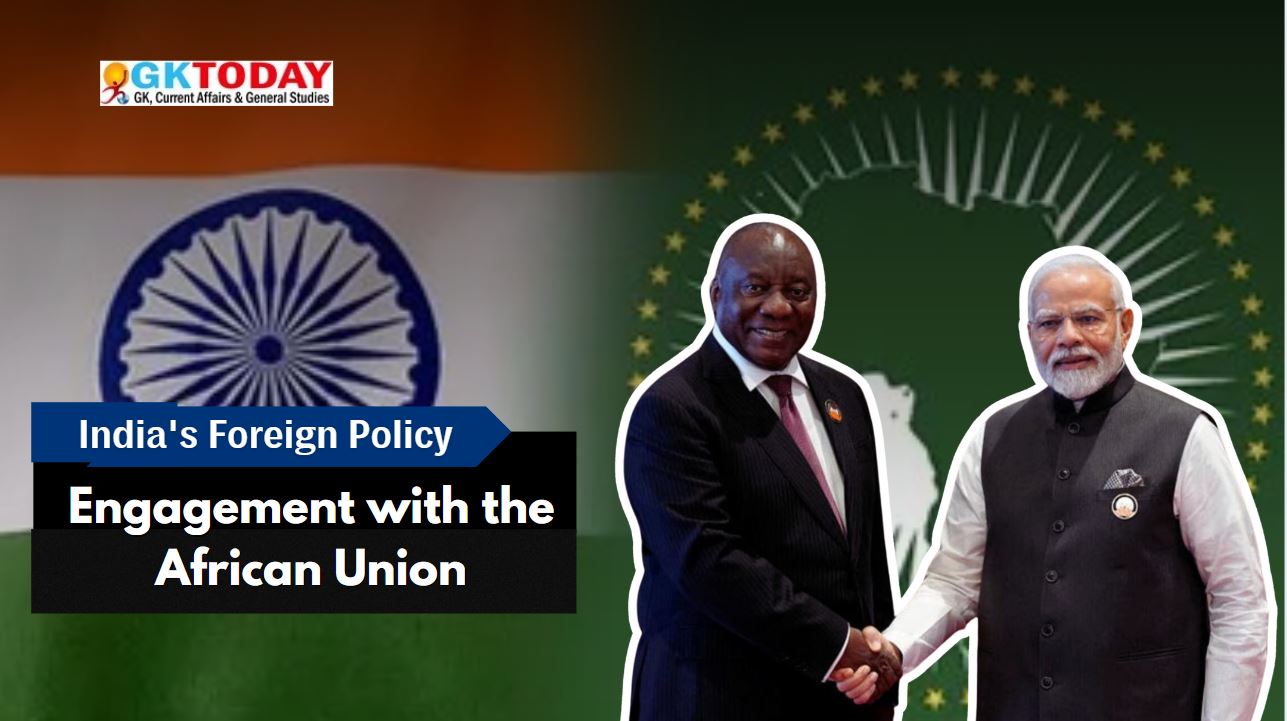India’s Foreign Policy – Engagement with the African Union [UGC-NTA NET Political Science]
India’s foreign policy towards Africa has evolved since the mid-20th century. India’s ties with Africa began during the decolonization movement of the 1950s and 1960s.
- India supported African nations in their struggles against colonialism.
- The Non-Aligned Movement was a platform for India to strengthen its ties with newly independent African countries.
- In 2001, the African Union replaced the Organization of African Unity, enhancing regional cooperation.
Diplomatic Relations
India recognises the AU as vital for African political stability and development.
- India has established diplomatic missions in over 30 African countries.
- The Permanent Mission in Addis Ababa serves as a key link to the AU.
- Regular consultations occur to align policies and initiatives.
Key Areas of Cooperation
India’s engagement with Africa encompasses various sectors.
Political Cooperation
- India supports African unity and integration through various initiatives.
- It advocates for African-led solutions to regional challenges.
Economic Cooperation
- Trade between India and Africa reached approximately $70 billion in 2021.
- India exports machinery, pharmaceuticals, and textiles to Africa.
- African nations supply India with minerals and agricultural products.
Development Assistance
- India has pledged $10 billion in credit to African nations.
- An additional $600 million is allocated for grants to support development projects.
Summits and Forums
The India-Africa Forum Summit (IAFS) serves as a platform for dialogue.
- The first summit was held in 2008, followed by gatherings in 2011 and 2015.
- Focus areas include trade, health, and education.
- India participates in AU summits, promoting peace and sustainable development.
Peace and Security Initiatives
India supports peacekeeping efforts in Africa.
- India has contributed troops to AU-led missions in Somalia and South Sudan.
- It also supports UN peacekeeping operations across the continent.
Cultural and Educational Exchanges
Cultural ties are strengthened through education and training.
- The Indian Technical and Economic Cooperation (ITEC) programme offers professional training to African citizens.
- Scholarships for African students are available in Indian universities, promoting educational exchange.
Health Cooperation
Health initiatives have gained prominence, especially during the COVID-19 pandemic.
- India supplied vaccines to multiple African countries, aiding in their pandemic response.
- Capacity-building initiatives focus on healthcare infrastructure and pharmaceuticals.
Trade and Investment
India aims to boost bilateral trade and investment.
- The Africa-India Trade and Investment Promotion Forum facilitates business partnerships.
- Indian investments target sectors like telecommunications, agriculture, and energy.
Technology and Innovation
Technological collaboration is a priority in India-Africa relations.
- India transfers technology in agriculture, renewable energy, and IT.
- The Pan-African e-Network project enhances connectivity and educational opportunities.
Challenges and Opportunities
India faces both challenges and opportunities in its African engagements.
- Competition with global powers like China and the USA poses a challenge.
- Opportunities exist in sustainable development and climate change initiatives.
- India can leverage its soft power and historical ties to strengthen relationships.
Recent Developments
Recent trends indicate a strengthening of ties between India and Africa.
- New bilateral agreements focus on trade, security, and technology.
- Increased emphasis on youth engagement and entrepreneurship is evident.
- India promotes initiatives that align with Africa’s development goals.


